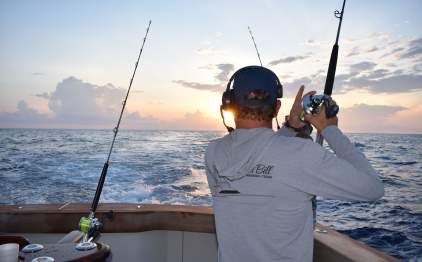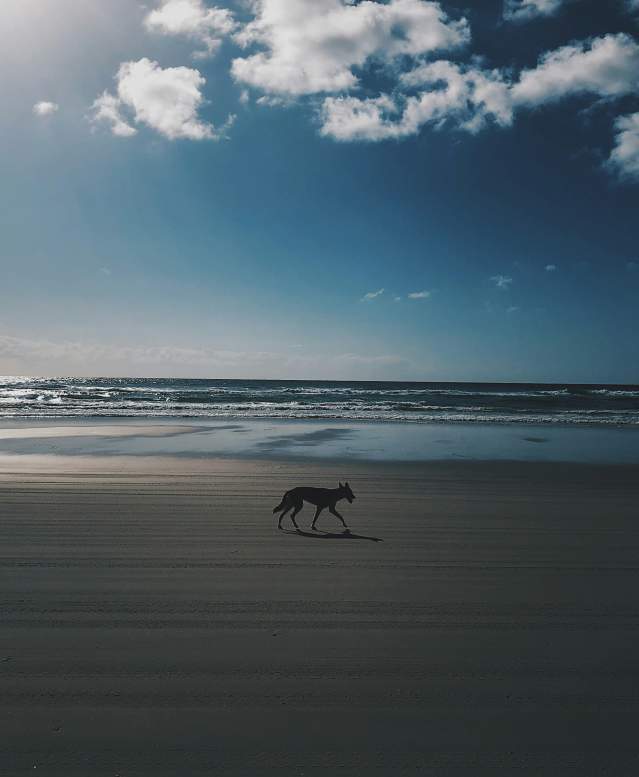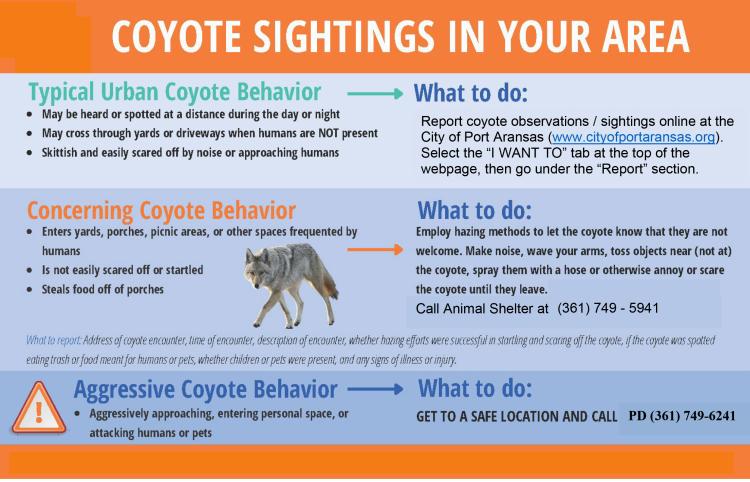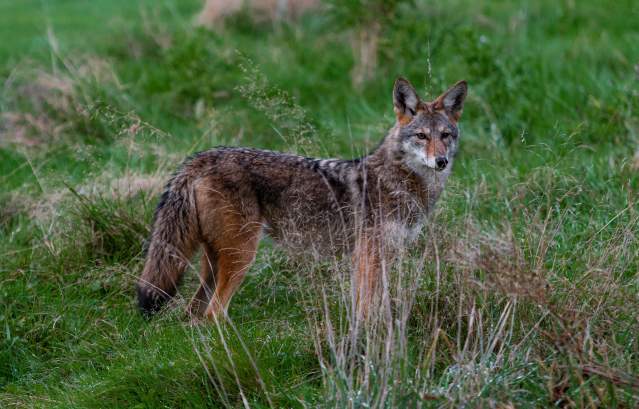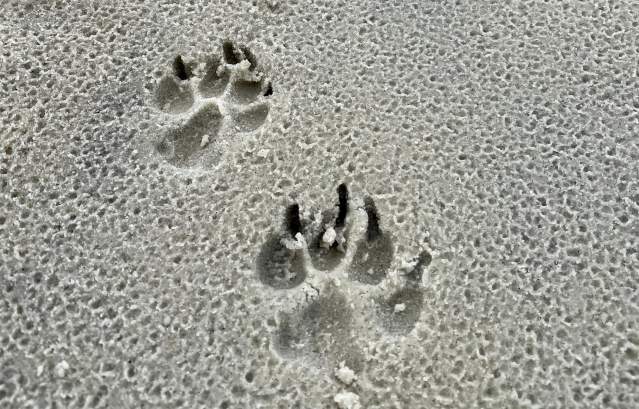Coyote Safety on Port Aransas Beaches
What You Need to Know to Stay Safe and Respect Wildlife
As you enjoy the beautiful beaches and natural spaces of Port Aransas, it’s important to remember that we share this habitat with native wildlife, including coyotes. These animals are an essential part of the coastal ecosystem and are typically not a danger to people—but like all wildlife, they deserve caution and respect. Here’s what you should know to keep yourself, your pets, and the coyotes safe.
You can learn more about coyotes in the City of Port Aransas here.
Are Coyotes Dangerous?
Not typically. Coyotes are naturally shy and prefer to avoid humans. Sightings may occur more often during dawn, dusk, or in quiet areas. While most coyotes will keep their distance, problems can arise when they become too comfortable around people—often due to being fed or unintentionally attracted by food sources.
What Not to Do Around Coyotes
Help us keep wildlife wild by avoiding these behaviors:
-
Do not feed coyotes, directly or indirectly (e.g., leaving out trash or pet food)
-
Do not approach or follow coyotes for photos or close encounters
-
Do not run—if a coyote approaches, stand tall and act confidently
⚠️ Feeding wildlife is illegal in many areas and can lead to dangerous behavior.
What to Do If You Encounter a Coyote
-
Make noise: Clap, shout, or use a whistle to scare them away
-
Keep pets leashed and children nearby, especially at dawn or dusk
-
Secure all food and trash around campsites, RVs, or beach gear
Protecting Pets from Coyotes
Coyotes may view small pets as prey or feel threatened by larger dogs. To protect your pets:
-
Keep dogs on a short leash
-
Avoid walking pets near dunes or off beaten path areas at night
-
Do not leave pets unattended on the beach or outside overnight
🐕 Leash laws are in effect—following them keeps everyone safe.
Don't be Afraid
Coyotes should not be something to fear. They are just as afraid of humans as humans are of them.
Coyote Facts
-
Coyotes are found in all of the United States, except Hawaii. Their range now extends from Central America to Canada.
-
Coyotes are most active after sunset and through the night, even though they are not strictly nocturnal. You may see them any time of day.
-
The coyote is very similar in size to a medium-sized dog and weighs an average of 25 to 40 pounds.
-
Coyotes can make 11 different vocalizations: growl, huff, woof, bark, bark-howl, lone howl, group yip-howl, whine, group howl, greeting songs, yelps. They use all these different sounds to communicate.
-
Coyote pups are born between early April and late May. The average litter contains four to five pups. They parent their young as a couple or within a family, and may be more aggressive this time of year.
-
Coyotes are naturally timid animals and will usually flee at the sight of people. With human habitats expanding, coyotes are adjusting to the changes, so it may be more likely for you to come across these Port A locals.
Paws in the Sand
The beach is part of the local coyote's home just like it is ours. Seeing coyotes or their tracks on the beach is normal!
Coexistence
Due to habitat loss across America, coyotes are increasingly occupying urban and suburban environments. They actually thrive in these types of environments as well. We can peacefully coexist with coyotes as long as people exercise proper coexistence practices.
- Do not feed the coyotes.
-
Remove accessible food sources from your yard. Consider spilled bird seed, pet food, and garbage.
-
If coyotes approach you in your area, make loud noises and exaggerated movements to scare them off.
- Supervise your pets when outdoors and be sure to keep them leashed at all times.
- It is recommended to use a leash six feet or shorter for your pets.
Be mindful of your surroundings. Whether you are on the beach or in the backyard, it's always good to keep a watchful eye on your pets and children. Coyotes are not looking to attack you. This is their home, just like it is for so many other humans and animals. By knowing the facts, safety skills, and how to coexist, we can all thrive in Port Aransas.
Disease Concerns
Rabies is rare and coyotes are not commonly implicated in the transmission of the disease to humans or domestic animals.
“Coyotes have much to teach us about peaceful coexistence & this is largely about altering human behavior & better understanding coyote behavior.”
~Dr. Marc Bekoff, Project Coyote Science Advisory Board

